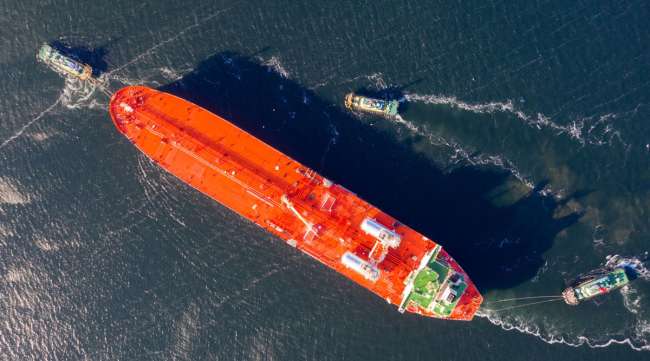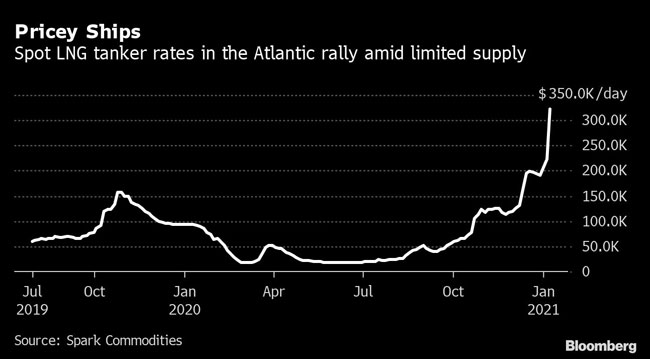Bloomberg News
Winter LNG Boom Creates Most Expensive Cargo Ships in History

[Ensure you have all the info you need in these unprecedented times. Subscribe now.]
An unprecedented shortage of liquefied natural gas tankers has made them the most expensive ships ever hired to ferry commodities.
Spot rates have more than tripled in the past month, with BP Plc last week paying $350,000 a day to charter an LNG tanker to pick up a cargo from the U.S. The previous high for any kind of commodity carrier was set in late 2019 when a crude supertanker was booked for daily earnings of $308,000, according to data compiled by Clarkson Research Services Ltd., a unit of the world’s biggest shipbroker.
Bullish factors have struck the LNG shipping market: robust Asian spot gas demand in a cold winter, record-high exports from U.S. projects and — perhaps most importantly — delays to traverse the Panama Canal. Vessels have been forced to take longer routes to Asia, increasing transport time and significantly curbing the amount of available vessels in the Atlantic.
“These are historically high levels,” said Per Christian Fett, global head of LNG at shipbroker Fearnleys A/S. “We are getting a lot of requirement where we really struggle to find a suitable vessel.”

Spot LNG tanker rates in the Atlantic basin rose to a record $322,500 a day Jan. 8, up $99,000 from Jan. 5, according to Spark Commodities, which takes assessments from LNG shipbrokers. Meanwhile, the Pacific spot tanker rates increased to $221,750 a day, according to Spark.
The high in daily earnings recorded by Clarkson Research is for commodity-carrying vessels, not containerships that transport finished goods.
The same factors have pushed prices for prompt cargoes to records. Japan-Korea Marker, the regional benchmark, rose almost 32% to $28.221 per million British thermal units Jan. 11, according to S&P Global Platts.
Want more news? Listen to today's daily briefing:
Subscribe: Apple Podcasts | Spotify | Amazon Alexa | Google Assistant | More




